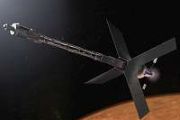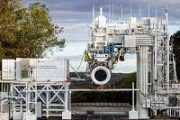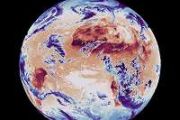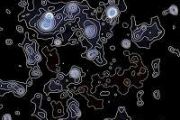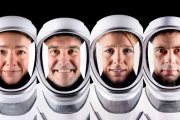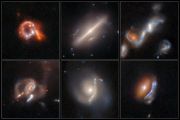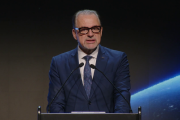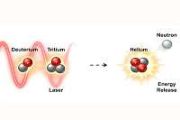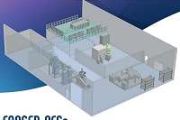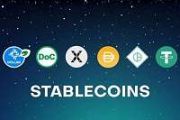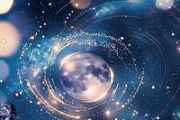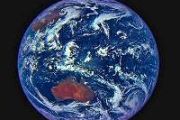
Copernical Team
NASA Advances Planning for Industry-Led Space Stations in Low Earth Orbit
 NASA is seeking feedback from U.S. industry on the second phase of its Commercial Low Earth Orbit (LEO) Development Program, which aims to ensure a smooth transition from the International Space Station (ISS) to commercially operated stations.
The agency issued a draft Phase 2 Announcement for Partnership Proposals (AFPP) on Friday, with comments due by 1 p.m. EDT, Sept. 12. An industry br
NASA is seeking feedback from U.S. industry on the second phase of its Commercial Low Earth Orbit (LEO) Development Program, which aims to ensure a smooth transition from the International Space Station (ISS) to commercially operated stations.
The agency issued a draft Phase 2 Announcement for Partnership Proposals (AFPP) on Friday, with comments due by 1 p.m. EDT, Sept. 12. An industry br SpaceX completes 500th booster landing in Starlink mission
 The SpaceX space technology company completed the 500th launch and landing of an orbital class booster Friday as it placed over two dozen satellites into orbit.
The SpaceX Falcon 9 rocket lifted off from Launch Complex 39A at NASA's Kennedy Space Center in Florida at 8:32 a.m. EDT, carrying a payload of 28 Starlink satellites into low Earth orbit.
With the 28 newly added satellit
The SpaceX space technology company completed the 500th launch and landing of an orbital class booster Friday as it placed over two dozen satellites into orbit.
The SpaceX Falcon 9 rocket lifted off from Launch Complex 39A at NASA's Kennedy Space Center in Florida at 8:32 a.m. EDT, carrying a payload of 28 Starlink satellites into low Earth orbit.
With the 28 newly added satellit Sharp rise in GPS jamming in aviation over Baltic Sea: Sweden
 GPS interference affecting aviation over the Baltic Sea region has risen sharply since 2023 and now occurs almost daily, Sweden's Transport Agency said on Thursday, pointing the finger at Russia.
The number of interference incidents with global navigation satellite systems (GNSS), such as GPS, in Swedish airspace has risen from 55 in 2023 to 733 this year as of August 18, according to new da
GPS interference affecting aviation over the Baltic Sea region has risen sharply since 2023 and now occurs almost daily, Sweden's Transport Agency said on Thursday, pointing the finger at Russia.
The number of interference incidents with global navigation satellite systems (GNSS), such as GPS, in Swedish airspace has risen from 55 in 2023 to 733 this year as of August 18, according to new da Global Invacom unveils XRJ transceiver for government and defense satcom
 Global Skyware, a division of Global Invacom Group, has introduced the XRJ transceiver designed for government and defense satcom markets. The unit operates across the full extended Ka-band for both transmit and receive, delivering up to 25 Watts of power, with 5w, 10w, and 20w variants also available.
The XRJ enables connectivity in GEO, MEO, and LEO orbits, ensuring operational flexibili
Global Skyware, a division of Global Invacom Group, has introduced the XRJ transceiver designed for government and defense satcom markets. The unit operates across the full extended Ka-band for both transmit and receive, delivering up to 25 Watts of power, with 5w, 10w, and 20w variants also available.
The XRJ enables connectivity in GEO, MEO, and LEO orbits, ensuring operational flexibili AI tool accelerates SAR image analysis with automated object detection
 ICEYE has partnered with Polish analytics firm SATIM to launch Detect and Classify, an artificial intelligence-driven product designed to transform radar satellite imagery into actionable intelligence. The system integrates ICEYE's high-resolution synthetic aperture radar (SAR) data with SATIM's machine learning to automatically identify vessels, aircraft, and vehicles with over 90 percent accur
ICEYE has partnered with Polish analytics firm SATIM to launch Detect and Classify, an artificial intelligence-driven product designed to transform radar satellite imagery into actionable intelligence. The system integrates ICEYE's high-resolution synthetic aperture radar (SAR) data with SATIM's machine learning to automatically identify vessels, aircraft, and vehicles with over 90 percent accur NASA Announces CHAPEA Crew for Year-Long Mars Mission Simulation
 Four research volunteers will soon participate in NASA's year-long simulation of a Mars mission inside a habitat at the agency's Johnson Space Center in Houston. This mission will provide NASA with foundational data to inform human exploration of the Moon, Mars, and beyond.
Ross Elder, Ellen Ellis, Matthew Montgomery, and James Spicer enter into the 1,700-square-foot Mars Dune Alpha habita
Four research volunteers will soon participate in NASA's year-long simulation of a Mars mission inside a habitat at the agency's Johnson Space Center in Houston. This mission will provide NASA with foundational data to inform human exploration of the Moon, Mars, and beyond.
Ross Elder, Ellen Ellis, Matthew Montgomery, and James Spicer enter into the 1,700-square-foot Mars Dune Alpha habita UMD-led study discovers warm space dust in distant place
 In a distant galaxy called Makani, particles of dust were warmed by the light of newborn stars before being flung out into space by a massive starburst-driven wind. Over the course of 100 million years, the dust traveled farther and farther from Makani's center, ultimately ending up in the reservoir of hot gas that surrounds a galaxy, known as the circumgalactic medium (CGM).
A research te
In a distant galaxy called Makani, particles of dust were warmed by the light of newborn stars before being flung out into space by a massive starburst-driven wind. Over the course of 100 million years, the dust traveled farther and farther from Makani's center, ultimately ending up in the reservoir of hot gas that surrounds a galaxy, known as the circumgalactic medium (CGM).
A research te New study maps ripples and hidden structures in southern Milky Way
 Astronomers have produced the most detailed 3D map yet of the Milky Way's cold gas clouds, revealing large-scale ripples in the Galaxy's midplane and identifying a new structure at the far end of the central bar. The work comes from the Three-millimeter Ultimate Mopra Milky Way Survey (ThrUMMS), led by Peter Barnes of the Space Science Institute.
Spiral galaxies like the Milky Way are gene
Astronomers have produced the most detailed 3D map yet of the Milky Way's cold gas clouds, revealing large-scale ripples in the Galaxy's midplane and identifying a new structure at the far end of the central bar. The work comes from the Three-millimeter Ultimate Mopra Milky Way Survey (ThrUMMS), led by Peter Barnes of the Space Science Institute.
Spiral galaxies like the Milky Way are gene Future deep space economy projected to drive trillion-dollar industries by 2040
 The global deep space economy could expand into a trillion-dollar market by 2040, with growth centered on energy, internet, tourism, and cultural creativity, according to insights shared at the third International Deep Space Exploration Conference in Anhui province, China.
Shi Pingyan, chief engineer of China's Deep Space Exploration Lab, presented a report at a sub-forum in Hefei that ide
The global deep space economy could expand into a trillion-dollar market by 2040, with growth centered on energy, internet, tourism, and cultural creativity, according to insights shared at the third International Deep Space Exploration Conference in Anhui province, China.
Shi Pingyan, chief engineer of China's Deep Space Exploration Lab, presented a report at a sub-forum in Hefei that ide Estonia celebrates 10 years in ESA

Estonia marked its 10th anniversary in the European Space Agency alongside the plenary session of the European Interparliamentary Space Conference on 4 September.








